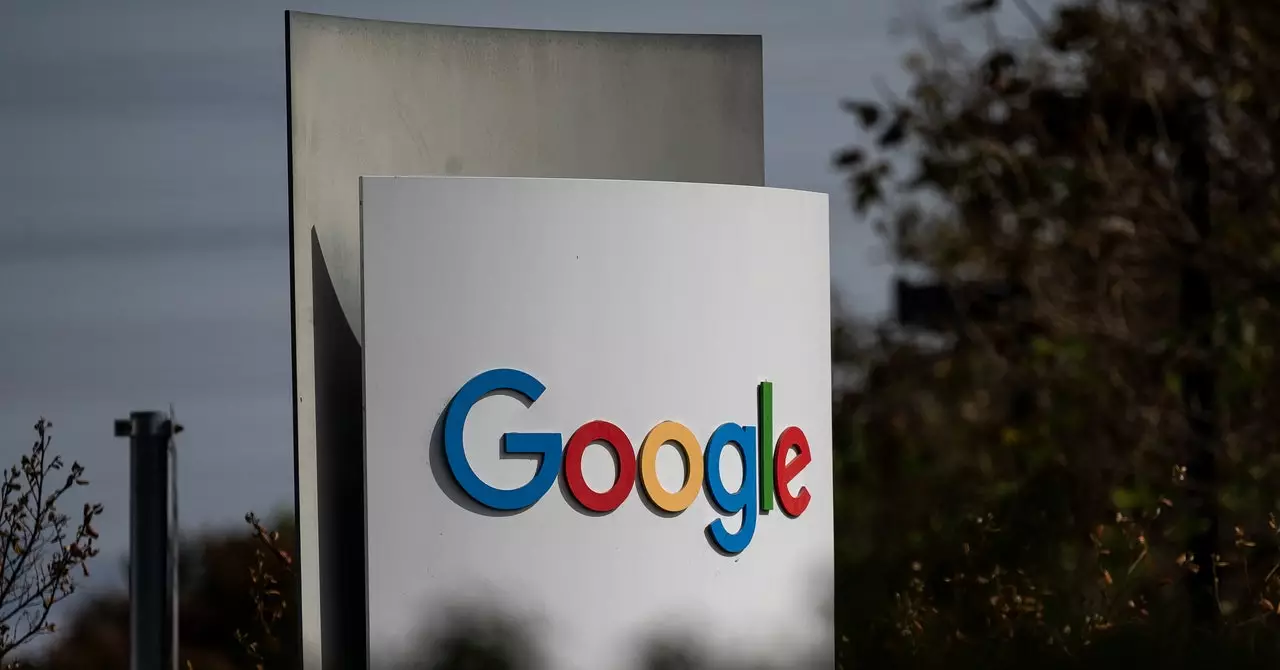As the landscape of digital communication and information retrieval continues to evolve, Google’s generative AI Gemini Assistant finds itself at a critical juncture. In its quest to compete against OpenAI’s ChatGPT and maintain relevance in the technological domain, Google is navigating a web of regulatory challenges that could define its future. Recent developments in U.S. antitrust discussions underscore the complexities Google faces as it attempts to reinforce its foothold in the market without leaving itself vulnerable to increased scrutiny and potential penalties.
The emergence of generative AI tools like Gemini and ChatGPT catalyzes a paradigm shift away from traditional search methodologies. As consumer preferences lean towards personalized, conversational AI interactions, the dynamics of market competition shift as well. Google’s focus on rolling out a robust product in Gemini raises critical questions: Can a technology giant transform its core competencies to adapt to the burgeoning field of generative AI without overstepping legal boundaries? The dilemmas posed by regulatory compliance highlight the challenges of competing in a rapidly evolving sector while adhering to the stringent standards set forth by government authorities.
In a recent court filing, Google proposed a suite of restrictions intended to reshape its partnerships with device manufacturers and carriers. For a period of three years, the tech behemoth aims to relinquish some control over how its partners position Gemini within the U.S. market. This step appears to be a proactive attempt to mitigate regulatory backlash while also fostering a level playing field for emerging competitors. As the U.S. Justice Department increases scrutiny, Google’s maneuvering reflects a broader strategy to balance compliance with the need to innovate and promote Gemini vigorously.
The Stakes of Antitrust Rulings
The antitrust case against Google, culminating in a recent ruling by U.S. District Judge Amit Mehta, marks a significant watershed moment in the tech industry. The court’s determination that Google has maintained monopolistic control over search functionalities raises vital questions about the implications for its future initiatives, especially with Gemini poised to become a significant player in the chatbot domain. Judge Mehta’s findings that Google leveraged its default positioning across platforms validates concerns about its ability to extend this dominance to generative AI tools.
The upcoming hearings scheduled for April will undoubtedly focus on the repercussions of these findings and their implications for Google’s operational methodology. With potential penalties looming and appeals expected post-ruling, the scrutiny on Google is expected to persist well into the future, creating a long-term climate of uncertainty. Moreover, as the narrative of default preferences emerges, it highlights the critical dependency on user behavior in shaping platform engagement, an aspect Google must navigate delicately.
Despite the regulatory quagmire, investor confidence in Google’s resilience remains notably high, with Alphabet’s stock witnessing substantial gains in 2024. This bullish outlook may stem from a combination of Google’s long-established dominance and its ongoing commitment to enhancing user experience—factors deemed vital amid rising competition. Google’s argument that their search platform thrives on delivering value to users resonates in an investment community increasingly wary of technological stagnation.
Yet, as Google emphasizes user experience, the careful layering of strategic partnerships is paramount. Its recent proposal to allow varied default setups among select device models hints at a calculated approach to avoid alienating partners while continuing to innovate within the AI sphere. This balancing act underlines a crucial dimension of modern tech governance—agility combined with adherence to established ethical boundaries.
As Google plots its trajectory forward, the fate of Gemini remains intertwined with the overarching regulatory framework. The company’s insistence on retaining flexibility in its partnerships while diluting mandatory promotional requirements is a proof of its intent to innovate without overstepping regulatory boundaries. However, the question persists: Can Gemini break through to prominence in a market that is both evolving rapidly and fraught with regulatory oversight?
Ultimately, Google’s ability to foster a competitive edge for Gemini will hinge not only on the technological merits of the product but also on its navigational prowess within an increasing labyrinth of regulation. As this ideally ties together both innovative fervor and a keen understanding of compliance, the path ahead will be critical for both Google and its competitors in the generative AI space. The ensuing legal and market developments will significantly impact the broader tech landscape, shaping the future of digital interaction for years to come.


Leave a Reply